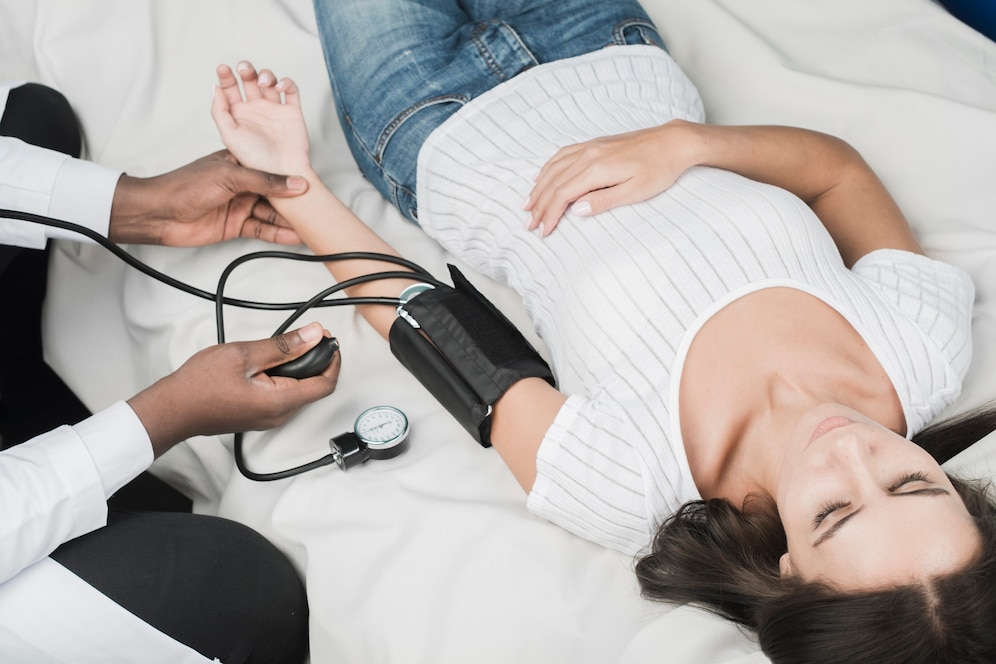Understanding The Link Between Hypertension And Stroke

Stroke From High Blood Pressure: Understanding The Ways
Here’s how hypertension contributes to brain strokes.- Damage To Blood Vessels
- Aneurysm Formation
- Increased Risk Of Atherosclerosis
- Microvascular Damage
Symptoms Of Brain Stroke
 Since different parts of the brain regulate distinct functions, the area that is affected determines the symptoms of a stroke.
To recognize the symptoms of stroke remember to BE FAST.
Since different parts of the brain regulate distinct functions, the area that is affected determines the symptoms of a stroke.
To recognize the symptoms of stroke remember to BE FAST.
- B - Balance: Check whether the person is facing trouble while standing, able to maintain balance or not.
- E - Eyes: Ask the person if they are facing a blurry vision.
- F - Face: Ask the person to smile. Check whether one or both sides of the face is drooping or numb.
- A-Arms: When the person lifts both arms at the same time, check whether one arm is drifting downwards.
- S - Speech: A slurred speech or difficulty speaking is a prominent symptom of stroke.
- T - Time: If you notice any of the symptoms in the person, note the time when symptoms started and immediately take the person to the nearest hospital.
Preventive Measures To Lower The Risk Of Hypertension And Stroke
Lifestyle changes can play a significant role in lowering high blood pressure and reducing the risk of a brain stroke.Do's
- Consume a healthy, balanced diet.
- Be physically active and exercise regularly.
- Maintain a healthy body weight.
- Take medications as prescribed by your healthcare professional.
- Avoid excessive salt intake.
- Limit foods high in saturated or trans fats.
- Do not smoke or consume tobacco.
- Avoid excessive alcohol consumption.
The Final Word
Hypertension and stroke are closely linked, making it essential to focus on prevention and early intervention. High blood pressure silently increases the risk of brain stroke, often without symptoms. However, the positive news is that with the right approach, it can be effectively managed and controlled. Simple changes, like keeping your blood pressure in check, eating a nutritious diet, exercising regularly, and avoiding unhealthy habits, can drastically reduce your stroke risk. Your journey to better health starts with small steps today—protect your brain, your body, and your future.References:
- https://www.heart.org/en/health-topics/high-blood-pressure/health-threats-from-high-blood-pressure/how-high-blood-pressure-can-lead-to-stroke
- https://www.world-stroke.org/world-stroke-day-campaign/prevent-stroke/stroke-and-hypertension
- https://www.mayoclinic.org/diseases-conditions/high-blood-pressure/in-depth/high-blood-pressure/art-20045868
- https://pubmed.ncbi.nlm.nih.gov/10405790/
- https://pubmed.ncbi.nlm.nih.gov/12496672/
- https://www.ahajournals.org/doi/10.1161/01.str.0000116869.64771.5a
- https://www.stroke.org/en/about-stroke/stroke-risk-factors/high-blood-pressure-and-stroke
- https://www.cdc.gov/stroke/data-research/facts-stats/index.html
- https://www.who.int/data/gho/indicator-metadata-registry/imr-details/3155
- https://mohfw.gov.in/sites/default/files/Fin%20-%20Stroke%20guidelines_0.pdf
- https://www.emro.who.int/health-topics/stroke-cerebrovascular-accident/index.html
- https://www.who.int/news-room/fact-sheets/detail/hypertension#:~:text=Overview,get%20your%20blood%20pressure%20checked.
- https://www.who.int/india/health-topics/hypertension
- https://www.emro.who.int/health-topics/stroke-cerebrovascular-accident/index.html
- https://my.clevelandclinic.org/health/diseases/5601-stroke
- https://my.clevelandclinic.org/health/diseases/4314-hypertension-high-blood-pressure
- https://www.mayoclinic.org/diseases-conditions/brain-aneurysm/symptoms-causes/syc-20361483
- https://pmc.ncbi.nlm.nih.gov/articles/PMC9441708/
- https://www.mdpi.com/1422-0067/25/24/13294
